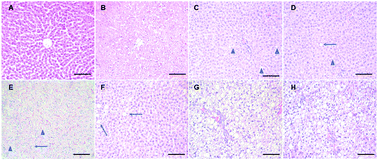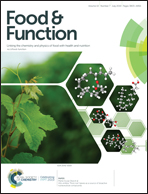Effects of chia (Salvia hispanica L.) on oxidative stress and inflammation in ovariectomized adult female Wistar rats
Abstract
The present study investigated the influence of chia consumption on inflammation, oxidative stress, and lipid profiles in adult female ovariectomized rats fed a high-fat diet. Forty ovariectomized and 40 intact (SHAM) rats were allocated into 8 groups (n = 10), and each rat received one of the following four diets: standard diet (ST); standard diet + chia (STC); high-fat diet (HF); and high-fat diet + chia (HFC) for 126 days. Biochemical parameters and biomarkers of lipid peroxidation, inflammation, and oxidative stress were evaluated. The mRNA expression levels of PPAR-α, NFκB, TNF-α and Zn-SOD1 were analyzed, as well as those of TNF-α and IL-1β. Chia intake increased HDL cholesterol (HDL-c) and reduced LDL cholesterol (LDL-c) levels. Plasma catalase activity was elevated in the STC group. Concentrations of TBARS were higher in all groups fed HF. PPAR-α mRNA expression was elevated, and levels of NFκB mRNA expression were reduced in the STC group. mRNA expression and protein levels of TNF-α were lower in rats fed the standard diet. Protein levels of IL-1β were reduced in rats fed the standard diet, and the high fat diet with chia. In general, ovariectomy did not influence the inflammatory and oxidative stress parameters. Chia intake improved antioxidant activity by increasing SOD expression, PPAR-α expression, catalase activity, and HDL-c levels. In addition, chia consumption decreased the concentrations of the inflammatory markers IL-1β and LDL-c.



 Please wait while we load your content...
Please wait while we load your content...